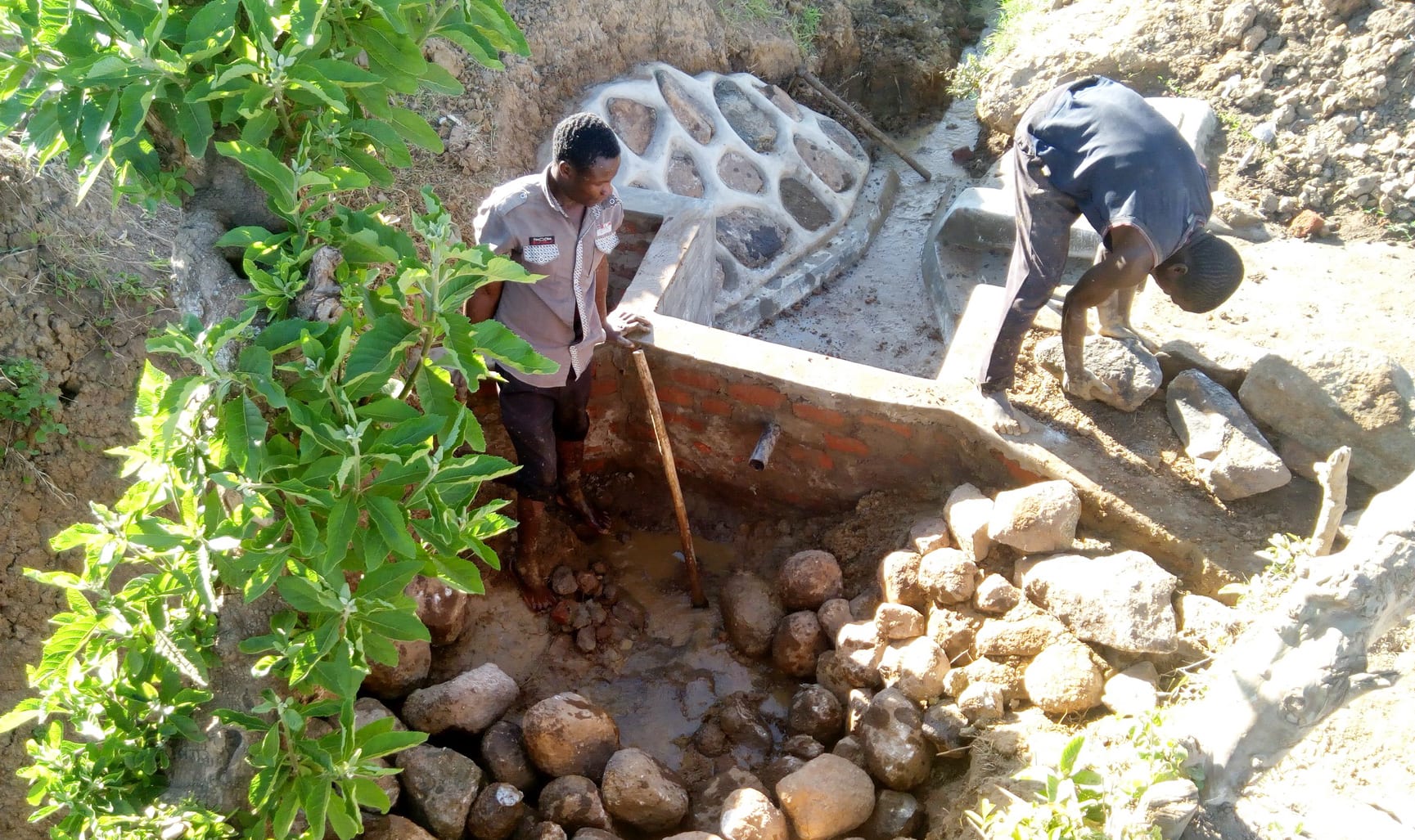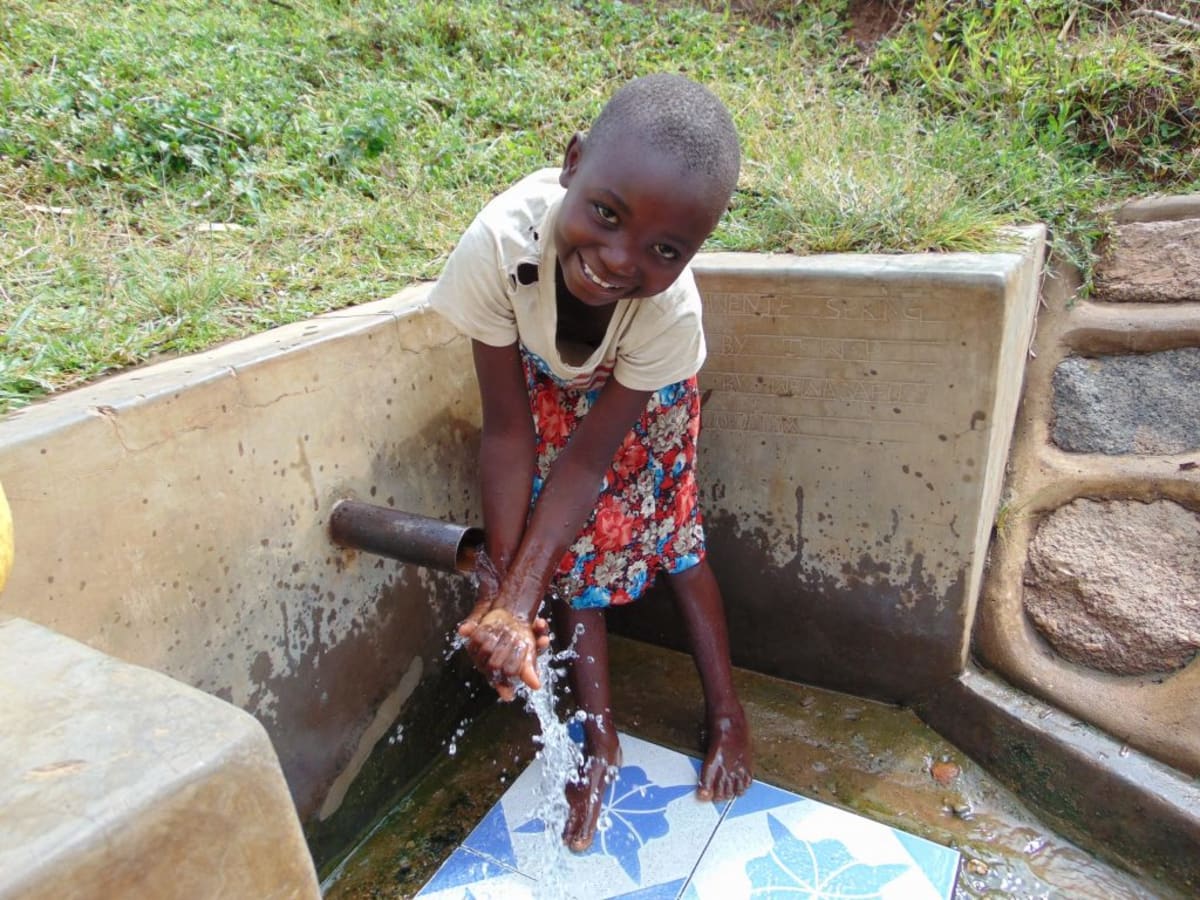A normal day in Musango begins when women wake up early in the morning to fetch water in order to get their children off to school and do household chores. Once they get all of the household chores done, they move on to weeding and watering their garden or farm. Men go out with their motorbikes which they use to taxi people around. Maize is the crop produced most in this community because it sells well.
Water Situation
A 70-year-old community members says that Ham Mwenje Spring has been there since he was born.
The water is contaminated by chemicals, algae, and feces. It's even worse when it rains as things are washed downhill into the water. Animals are free to come and go as they please to drink from and defecate in the water.
Many have come to trust this water source to meet all of their needs. They believe it is safe for drinking. Others disagree, saying they spent too much of the past year treating family members suffering from waterborne diseases like typhoid and cholera. Diarrhea is a common symptom that many accept as normal.
Sanitation Situation
Less than a quarter of households in the area have a basic pit latrine. As for personal hygiene, most people bathe in a huge river that passes through the area.
There are some sanitation structures in the community such as clotheslines, but a lot of important sanitation structures are missing: pit latrines, compost pits and hand-washing stations.
Here's what we're going to do about it:
Hygiene and Sanitation Training
Community members will attend hygiene and sanitation training for at least two days. This training will ensure participants have the knowledge they need about healthy practices and their importance. The facilitator plans to use PHAST (Participatory Hygiene and Sanitation Transformation), CLTS (Community-Led Total Sanitation), ABCD (Asset-Based Community Development), group discussions, handouts, and demonstrations at the spring. One of the most important topics we plan to cover is the handling, storage, and treatment of water. Having a clean water source will be extremely helpful, but it is useless if water gets contaminated by the time it’s consumed. Hand-washing will also be a big topic.
Training will also result in the formation of a committee that will oversee operations and maintenance at the spring. They will enforce proper behavior around the spring and delegate tasks that will help preserve the site, such as building a fence and digging proper drainage. The fence will keep out destructive animals, and the drainage will keep the area’s mosquito population at a minimum.
Sanitation Platforms
On the final day of training, participants will select five families that should benefit from new latrine floors.
Training will also inform the community and selected families on what they need to contribute to make this project a success. They must mobilize locally available materials, such as bricks, clean sand, hardcore, and ballast. The five families chosen for sanitation platforms must prepare by sinking a pit for the sanitation platforms to be placed over. All community members must work together to make sure that accommodations and food are always provided for the work teams.
Spring Protection
Protecting the spring will ensure that the water is safe, adequate and secure. Construction will keep surface runoff and other contaminants out of the water. With the community’s high involvement in the process, there should be a good sense of responsibility and ownership for the new clean water source.
Fetching water is predominantly a female role, done by both women and young girls. Protecting the spring and offering training and support will therefore help empower the female members of the community by giving them more time and efforts to engage and invest in income-generating activities.



 Rehabilitation Project
Rehabilitation Project








































